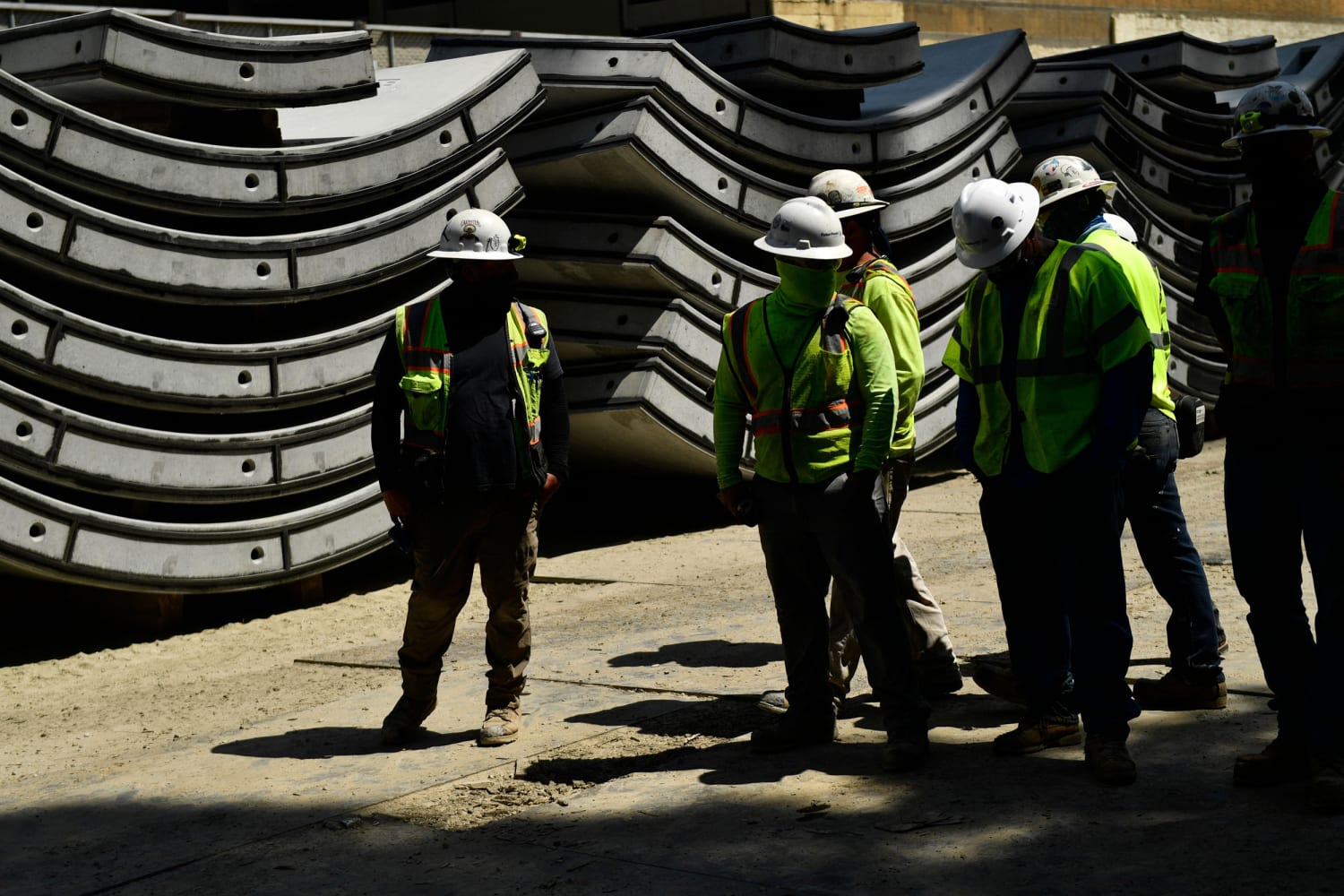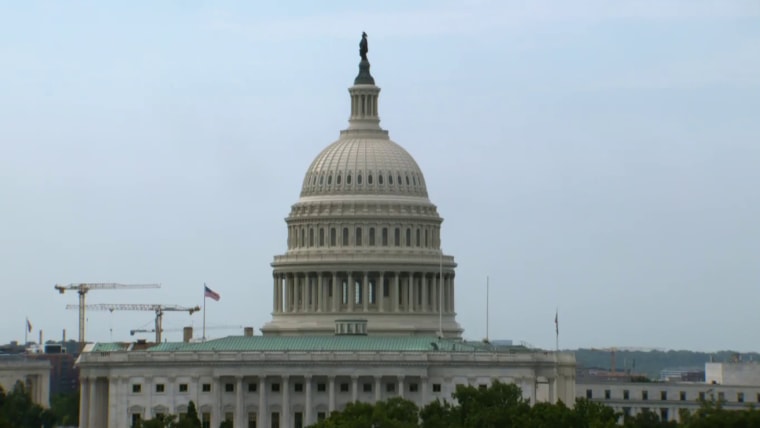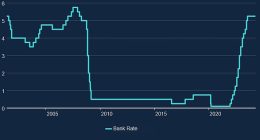WASHINGTON — A battle over highways and public transportation nearly derailed the Senate infrastructure deal. And while negotiators reached a compromise to move the bipartisan package forward, the fight is just beginning.
Democrats say the $39 billion for transit in the Senate bill is not nearly enough, and are eying a separate multitrillion-dollar package as an opportunity to build more electric buses and rails, which they see as important to reducing America’s carbon footprint and combating climate change.
“We want to give people an alternative to the most heavily polluting thing in America and to get sustainable, renewable sources for transportation,” Senate Majority Whip Dick Durbin, D-Ill., told NBC News. “Exhibit A is transit offered in the city of Chicago — keeps cars off the streets and pollution out of the air.”
Durbin said Democrats can do more for public transit “in many respects, but not in every respect,” in the $3.5 trillion bill they expect to pass without Republican support. He noted that specific provisions of the Senate agreement cannot be renegotiated, which means Democrats will have to get creative.
“There’s a line that’s been drawn by the White House in negotiating that we have to respect,” he said.
The clash mirrors a growing divide between blue and red America. On one side are big cities that are represented by Democrats — including, increasingly, their suburbs — that are demanding green public transit. On the other side are vast swaths of rural America dominated by Republicans and where public transit barely exists and cars are the only way to get around.
“Transit is always going to be a bigger issue for Democrats,” said a GOP strategist who has worked on Capitol Hill and campaigns. “In most places in the U.S., where there are large numbers of people using mass transit, they are represented by Democrats.”
A political realignment
A recent political realignment has widened that divide. Many suburban areas that benefit from public transit into big cities have flipped from Republican to Democrat, giving the GOP less of an incentive to spend money on clean buses and trains.
“That shift accelerated in the Trump era,” said the GOP strategist, who requested anonymity to bluntly explain the party’s mentality on transit. The strategist added that while numerous Republican senators hail from states that include cities with public transit, those areas tend to vote for Democrats.
Sen. Rob Portman, R-Ohio, said that the Democrats’ offer was “way too rich” on transit and that Republicans weren’t willing to go that high.
“It’s still a very generous increase in funding for transit. It’s just not hugely disproportionate compared to roads and bridges,” Portman said, calling the final outcome a “true compromise.”
Sen. Bill Hagerty, R-Tenn., said money for roads is more important to his state.
“I’m from Tennessee. Of course it is,” he said. “We’re a highway state.”
Public transit exists in the form of rail in cities like Nashville and Memphis, Hagerty said, but roads and the interstate highway system matter more to his state. “There’s the trucking industry. The logistics industry in Tennessee is a very big part of our state’s competitive advantage — and it’s highways.”
In an evenly divided Senate, Republicans who disproportionately represent sparse and rural states flexed their muscle to secure large sums of money for roads, while limiting the ambitions of Democrats who tend to represent more populated states that want to beef up their public transportation.
‘Bold climate provisions’
Past debates involving climate change have tended to make many voters fear for their electricity bills and potentially their jobs. Unlike in prior years, Democrats are hoping to minimize concerns by taking an approach that funds clean energy without taxing or regulating fossil fuels.
Rep. Peter DeFazio, D-Ore., the chair of the House Transportation Committee, lit into the Senate framework after key details emerged last week.
“From what I know, this bill will not deal with climate change,” he said. “And that’s a travesty — at this point in time to lock in highway-centric failed policies of the last century, and ignore the largest single contributor to fossil fuel pollution in the United States of America, which is transportation.”
DeFazio said he plans to advance his climate goals in the separate Democrats-only package. House Speaker Nancy Pelosi, D-Calif., has said she won’t allow a vote on one bill without the other.
Climate activists fault the bipartisan group for leaving provisions on electric buses and electric vehicle charging stations on the cutting room floor.
“These negative developments make it all the more important we get bold climate provisions in the reconciliation bill that invests heavily in transit and electric vehicles,” said Jamal Raad, a former Senate Democratic aide who is now executive director of the group Evergreen Action.
Democrats wanted a split of 80 percent for highways and 20 percent for transit. In the end, they got 19 percent for transit, said Sen. Tom Carper, D-Del., the chair of the Environment and Public Works Committee, calling it an improvement from recent years.
He said there were important victories tucked into the bill.
“The real number that people aren’t really focused on is intercity passenger rail,” Carper said in an interview. “The numbers there are off the charts — in investments, not just in the Northeast Corridor, but across Amtrak’s national plan.”
Source: | This article originally belongs to Nbcnews.com










